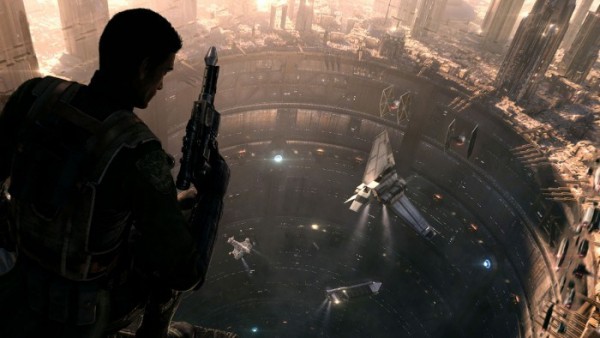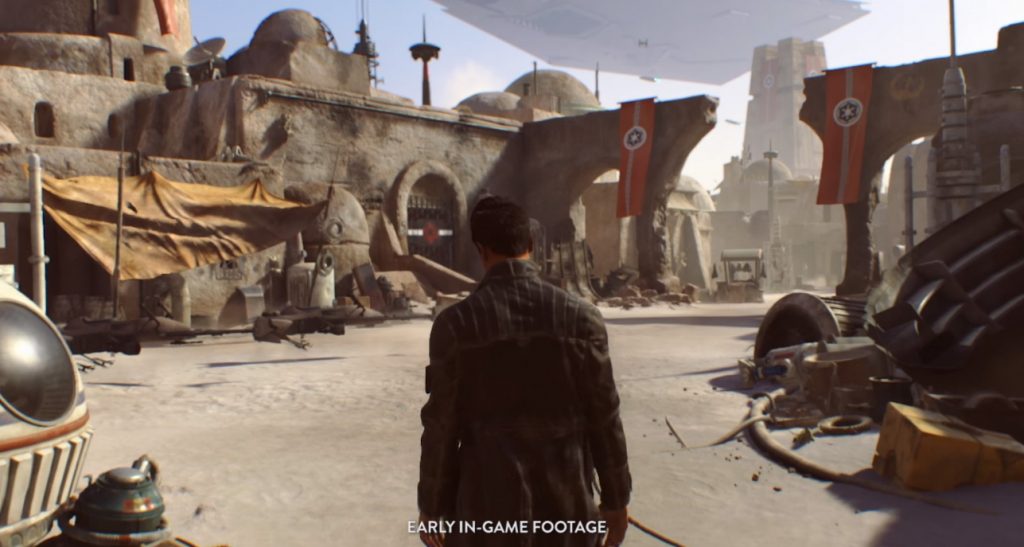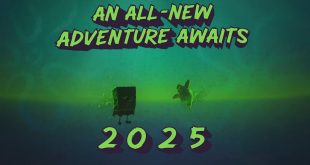EA’s handling of the Star Wars franchise has garnered a lot of criticism from fans over the years, with its unnecessary focus on microtransactions becoming the focal point of an unsuccessful petition to get the license revoked in 2017. It seems as though Rogue One: A Star Wars Story writer Gary Whitta agrees, stating that the publisher has “catastrophically mismanaged” the IP.
First on the chopping block was the anticipated Star Wars 1313, a game that focused on bounty hunting through the eyes of a young Boba Fett. Although this wasn’t anything to do with Electronic Arts (EA) at the time, Disney’s abandoning of the trademark and layoffs at LucasArts development team set the stage for further disappointment at the hands of EA.
Next up was a single-player game codenamed Ragtag, a title being developed by Visceral Games and headed by Uncharted director Amy Hennig. Gameplay footage was released in its pre-alpha stage following a gang leader known as Dodger, as well as a range of concept art depicting the misfits he banded with. Unfortunately, EA criticised Ragtag for being too linear to layer monetisation on top, resulting in Hennig walking and Visceral Games closed shortly after.
“I saw a bunch of that game and it looked terrific,” Whitta says in relation to EA’s Ragtag. “After it was cancelled I saw some stuff, I saw what they had up that point, it was far from finished but it looked amazing, it would have been Star Wars Uncharted which I’m very excited about. My understanding is what they were saying all the way through is that we don’t want to make Star Wars Uncharted. Well, maybe don’t hire the narrative director of the Uncharted games to make it for you, and figure out what it is you actually want?”
These assets were subsequently handed to development studio EA Vancouver, who transformed the project into what’s known as Orca. This was a much more ambitious open-world project that was set to allow players to visit multiple planets. Due to the scale needed to produce the game, EA changed its mind part-way through development, stating that it wanted something to release sooner to fit in with its roadmap. This meant scrapping Orca in favour of something smaller.
It’s not just in-development games that suffer however, as EA’s Star Wars: Battlefront II managed to see the light of day in November, 2017. Shortly after, it was chastised for its over-monetisation and loot boxes which heavily tied into progression. “If I was an EA shareholder, I’d be f**king furious,” added Whitta, stating that the “it has been catastrophically mismanaged.”
Although EA did eventually rectify the mistake, the damage had already been done, with many still clamouring to see EA lose the license.
KitGuru Says: I can’t argue with Whitta. If I was a shareholder, I’d also be livid at the treatment of perhaps the biggest IP in the world. There should be many more games flowing out at this point, with clear and concise direction.
 KitGuru KitGuru.net – Tech News | Hardware News | Hardware Reviews | IOS | Mobile | Gaming | Graphics Cards
KitGuru KitGuru.net – Tech News | Hardware News | Hardware Reviews | IOS | Mobile | Gaming | Graphics Cards




